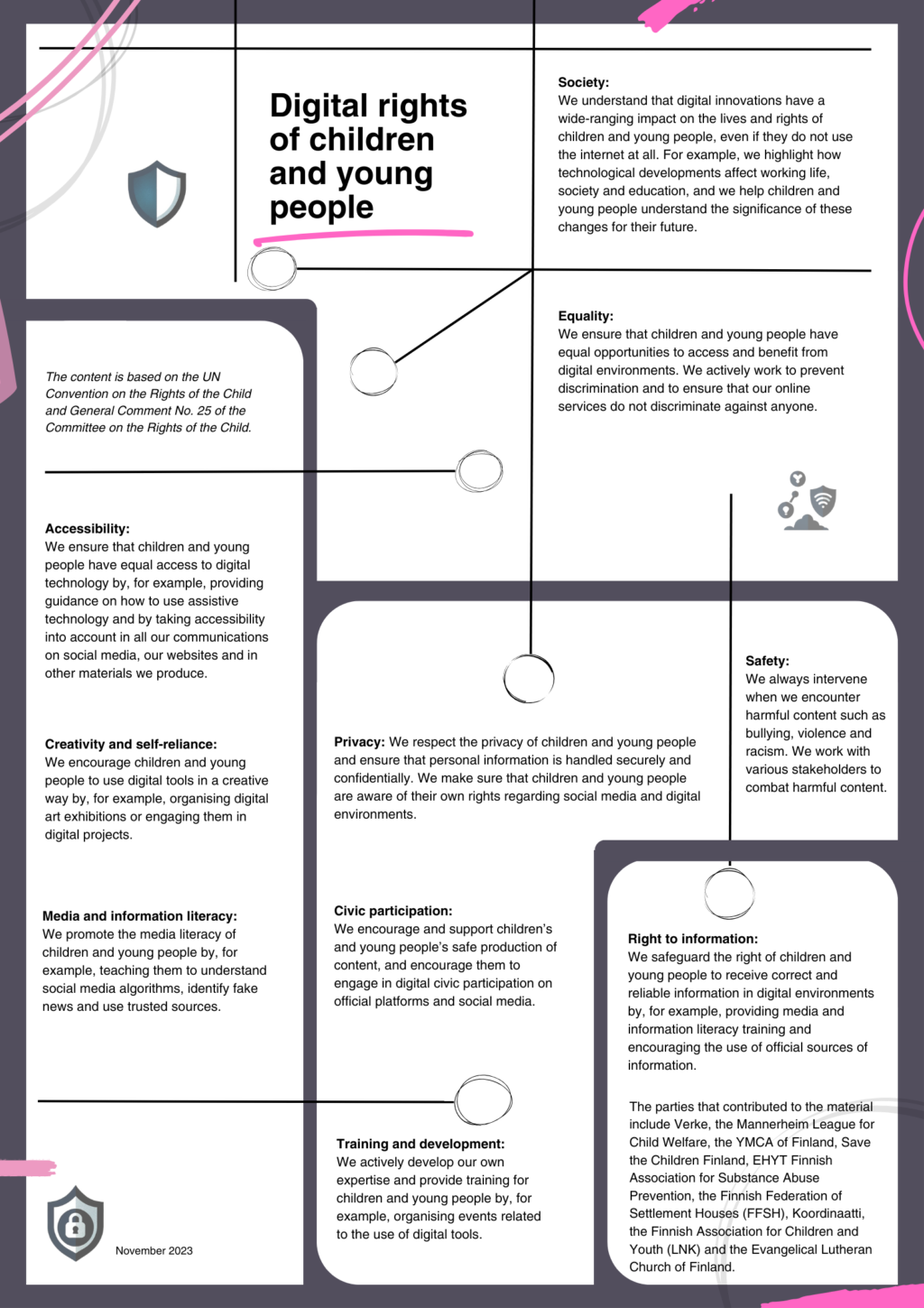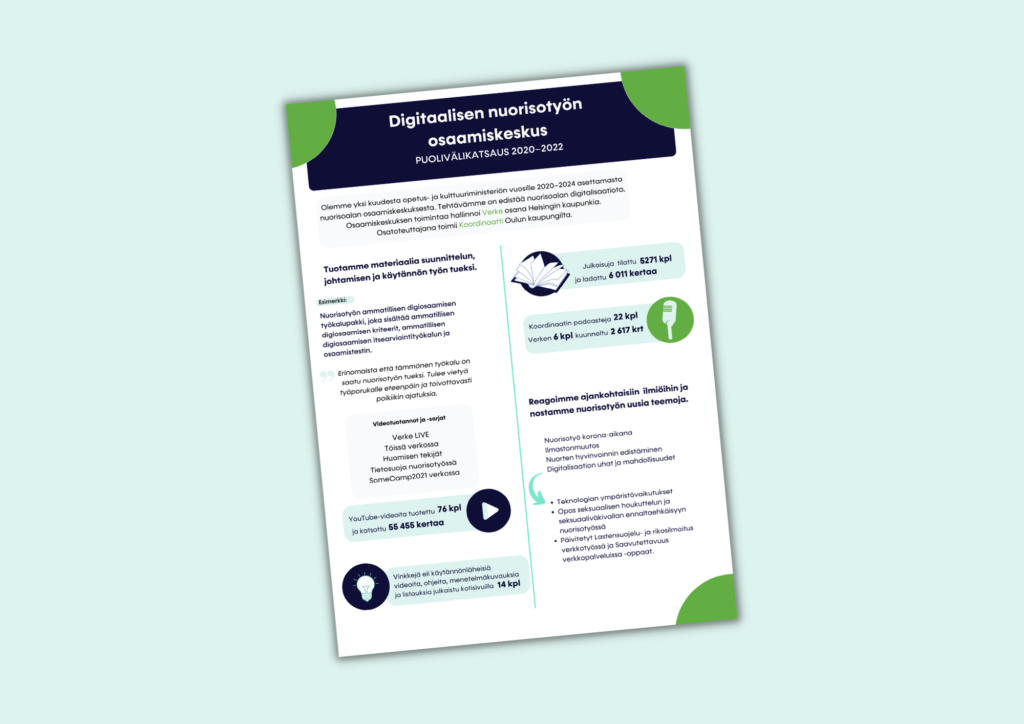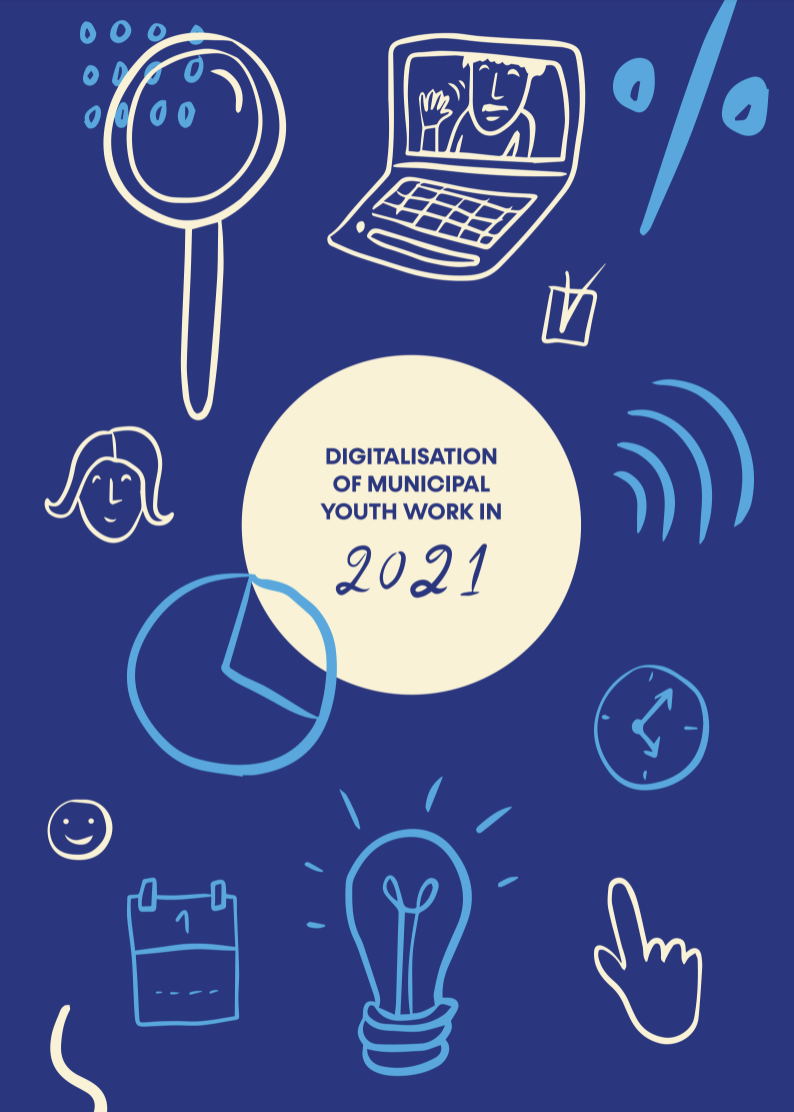The support material for youth workers “Rights of children and young people in digital environments” highlights how important it is for youth workers to recognise and understand the rights and opportunities that children and young people have in digital environments.
The house rules presented in the material include instructions with which youth workers can promote the equality and privacy of children and young people in the digital world. The material emphasises the importance of security, especially in combatting harmful content such as bullying, violence and racism. In addition, the material highlights the right of children and young people to reliable information and the opportunity to improve their media literacy.
Supporting creativity and independent activities is also a key theme in the material, as is civic participation and understanding of social change. The material impresses on the reader the importance of understanding that the development of technology affects young people’s lives in many ways, and that youth workers need to be prepared to support them in understanding these changes.
The material also states that it is important for youth workers to engage in training and to improve their personal competence so that they are better prepared to support young people in digital environments.
The content is based on the UN Convention on the Rights of the Child and General Comment No. 25 of the Committee on the Rights of the Child.
The parties that contributed to the material include Verke, the Mannerheim League for Child Welfare, the YMCA of Finland, Save the Children Finland, EHYT Finnish Association for Substance Abuse Prevention, the Finnish Federation of Settlement Houses (FFSH), Koordinaatti, the Finnish Association for Children and Youth (LNK) and the Evangelical Lutheran Church of Finland.
Links:
General Comment 25 https://lapsiasia.fi/documents/25250457/38754461/CRC_CGC_25.pdf
Convention on the Rights of the Child: https://lapsiasia.fi/lapsen-oikeuksien-sopimus





